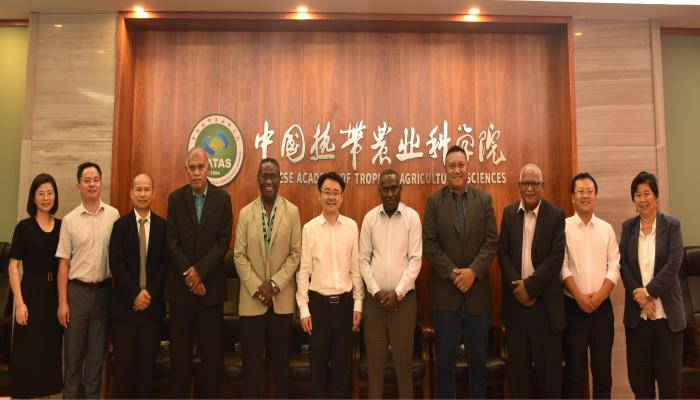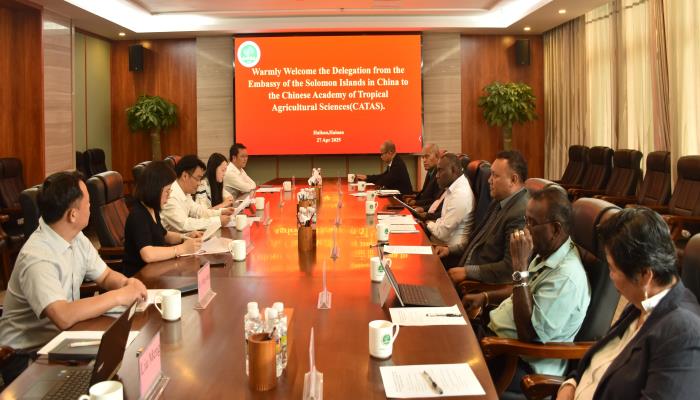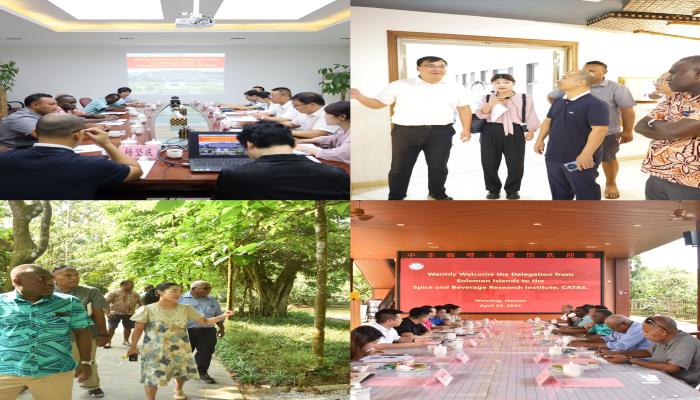Hainan, China - From April 27 to 29, a 7-member delegation led by H.E. Mr. Barrett Salato, Ambassador of the Solomon Islands to China, paid a working visit to the Chinese Academy of Tropical Agricultural Sciences (CATAS). The two sides held discussions to deepen cooperation in tropical agricultural science and technology. Li Jihua, Vice President of CATAS, attended the meeting.

Group Photo
In his welcoming remarks, Vice President Li Jihua stated that China and the Solomon Islands have long upheld the principles of mutual respect and win-win cooperation. Under the frameworks of the Belt and Road Initiative (BRI) and the Global Development Initiative (GDI), cooperation in agricultural science and technology between the two countries has steadily advanced and yielded tangible results. He highlighted CATAS’s unique position as China’s sole national-level research institution dedicated to tropical agriculture and expressed CATAS’s readiness to leverage the signed cooperation agreement to focus on key tropical crops such as coconut, oil palm, and cocoa. He proposed comprehensive collaboration along the entire agricultural value chain, including variety improvement, efficient cultivation, and processing technologies. The goal, he said, is to jointly develop practical and sustainable cooperation plans that can support the high-quality development of the agricultural sector in the Solomon Islands.
H. E. Ambassador Barrett Salato spoke highly of CATAS’s outstanding technological advantages in tropical crop genetic breeding, efficient cultivation, and agricultural product processing. He emphasized the similar climatic conditions between the Solomon Islands and China’s Hainan Province and their highly complementary agricultural resource endowments. He expressed expectations to carry out diversified cooperation, including technology sharing, joint research, and talent cultivation, to help the Solomon Islands optimize its agricultural industrial structure, enhance food security capabilities, and accelerate its agricultural modernization.

Symposium Photo
During the visit, the delegation conducted on-site inspections of CATAS’s Coconut Research Institute and Spice and Beverages Research Institute. They gained an in-depth understanding of the latest scientific research progress and achievements in the conservation of germplasm resources, variety breeding, and processing technologies for tropical oil crops and spice crops. The two sides held in-depth exchanges on key technologies such as variety breeding, pest and disease control, and comprehensive utilization of by-products for crops like coconut, oil palm, cocoa, and coffee, reaching preliminary cooperation intentions.

The delegation also conducted on-site inspections in Wenchang and Wanning.


